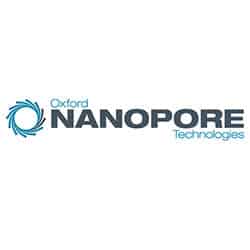
Amgen has taken a £50m ($66m) minority stake in Oxford Nanopore Technologies (ONT), a UK company making waves in the genetic sequencing market.
The new investment takes ONT’s valuation above £1.5bn – firmly in the territory of ‘unicorn’ companies figured to be worth more than $1bn – and gives ONT a backer which is a big user of sequencing technology.
Amgen said its investment in Oxford Nanopore – which gives it a 3% stake – ties in with its “strategic focus on using human genetics to deliver new medicines to patients,” adding that its deCode Genetics subsidiary already uses the UK company’s devices in its genomic research, including the identification and validation of new drug targets.
ONT is best known for its MinION device – a pocket-sized DNA and RNA sequencer based on nanopore technology that can sequence an entire human genome – using protein nanopores – in real time. As a sample passes through the nanopore, it causes changes in current which can be detected by the unit with a high degree of accuracy.
More recently, the company has started selling a benchtop, high-throughput device called PromethION based on the same technology, and that has allowed it to make headway against its main rival Illumina and smaller players like Pacific Biosciences in the genome sequencing market.
Earlier this month, it also launched MinIT, a rapid analysis and device control accessory for the MinION designed to make it more portable and easier to use in the field, to complement other accessories and devices such as the Flongle adapter for smaller experiments and smartphone-based sequencer SmidgION.

deCode Genetics founder Kári Stefánsson seems to be a fan of the nanopore technology, saying it “creates a window into parts of the genome that have been out of reach, as well as giving us a much better handle on structural variants that confer risk of a wide variety of diseases.”
He added: “We have used [ONT] technology to sequence several hundred human genomes and continue to see the promise of this emerging technology.”

Gordon Sanghera
It’s the second fundraising for Oxford Nanopore in recent months, led by chief executive Gordon Sanghera. The company raised £100m in March from a global syndicate of private investors, a sum that it said would help it expand commercially, for example by building a new manufacturing facility in Oxford and adding to its headcount.
There’s no question that ONT needs to build scale quickly if it is to take on the likes of Illumina, which reported sales of $2.75bn last year compared to the UK biotech’s $18m or so, and PromethION – as well as mid-size device GridION – are viewed as they key to taking its business to a higher level. PacBio’s 2017 revenues came in at $93.5m.
There’s still a lot of debate about the relative merits of all three companies platforms, with critics suggesting ONT’s technology is not as accurate or high-throughput as Illumina’s, and the latter will continue to dominate the category. ONT reckons it is steadily closing the accuracy gap, as well as boosting the yields of its platform.




